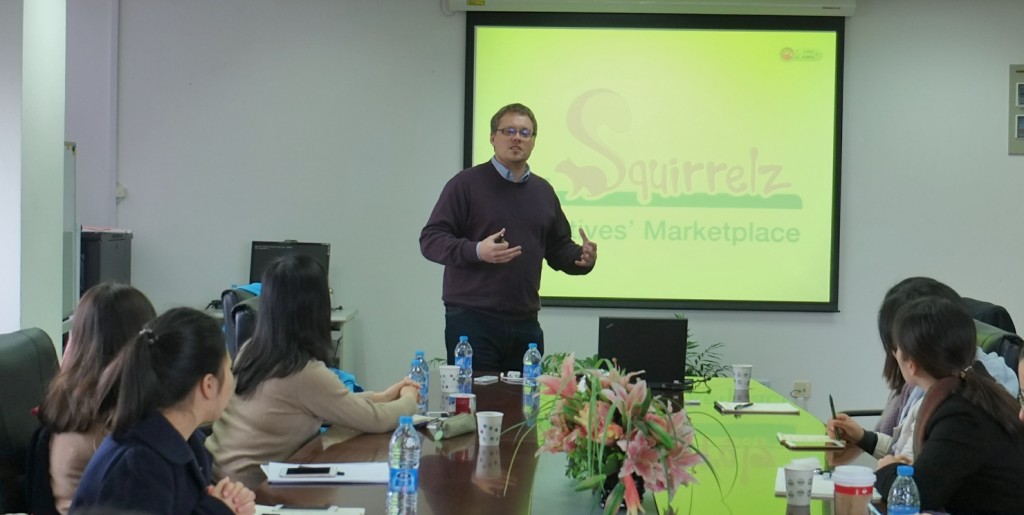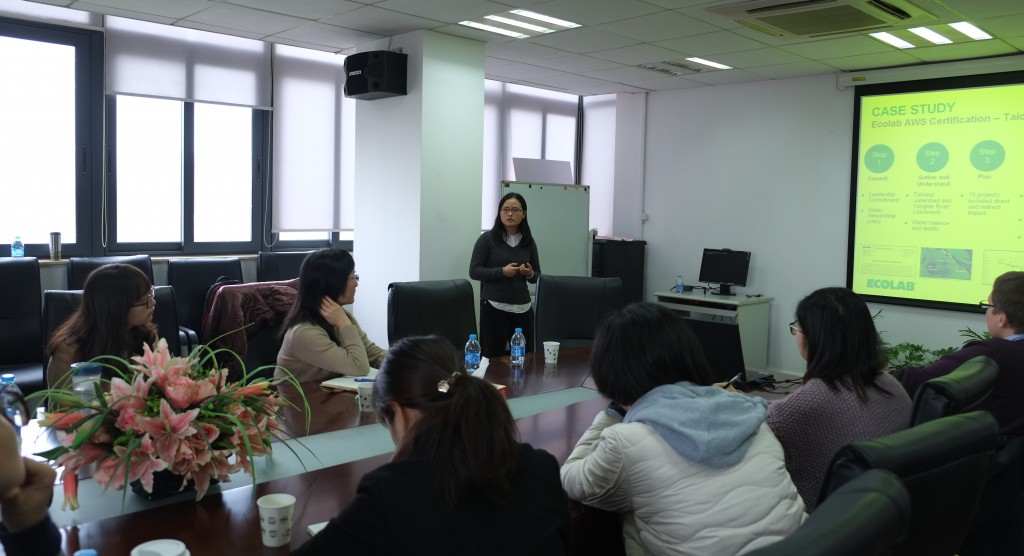
The world that surrounds us – the signs that direct us, the smartphone pages we flick through, the way we use buildings, how we move around cities – is consciously or unconsciously designed. This design has a great impact on the use and sustainable credentials of our products and systems. In fact, 80% of the environmental impacts of the products we use daily are determined in the very early stages of design. Therefore, how we design more sustainable products, services and (more importantly) systems have significant implications for sustainability.
The talk we hosted this Wednesday at Shanghai University focused on “Sustainable Design for the Future,” the third event of the sustainability speech series we have co-organized with the College of Economics and International Business since this September.

The two speakers brought in today are extremely knowledgeable about designing systems for the treatment and reuse of commercial and industrial waste. Guo Chen is the RD&E Wastewater Team Lead from Ecolab – a global leader in water, hygiene and energy technologies, and services. At Ecolab, Guo works to develop wastewater treatment technologies and has over five years of experience in industrial wastewater treatment and water stewardship. Ryan J. King, the second speaker, is currently the Director of International Relations at The Squirrelz, a leading upcycle design double-ended marketplace, which matches eco-designers with overstocked goods that would otherwise go to waste and provides them with an online shop in which to sell their wares. Within this business, Ryan is building a community of designers both within China and across the world, onboarding them and turning them into partners for the Squirrelz.
In her presentation, Guo mainly introduced the “Alliance for Water Stewardship”(AWS) that Ecolab has initiated in partnership with WWF. It is a comprehensive system aiming to call on all users of water resources to act on reducing the impact and risks of industrial water in order to achieve sustainable water use – an initiative framed by Ecolab as “beyond fenceline”. Ryan explained the innovative business model of the Squirrelz: by buying large quantities of solid industrial wastes and selling smaller quantities to eco-designers, who would otherwise be unable to source such material, and then helping build market channels for all upcycled products, the company not only helps reduce excess wastes but also brings down cost and benefits for all involved in the process – the factory sells it “waste”, reducing losses; the designers get high-quality materials otherwise unavailable to them; and the purchaser derives greater utility from knowing they have bought from otherwise wasted resource.
To us, the two companies represent great cases where the re-design of an existing system – be it the water treatment process or the value chain of industrial wastes – provide opportunities to save natural resources while creating economic values. It provides an example that the concept of thinking sustainably can, in fact, drive cost down whilst reducing overall harm or waste. In this case of Ecolab they have successfully streamlined a factory to reduce water pollution and overall use; for Squirrelz they have developed a business model that leverages the excess capacity of an otherwise wasted resource.
Should you be interested in hosting or becoming a speaker of the Sustainability Speech Series, please reach out to Chuli at [email protected] or Yuxin at [email protected].
